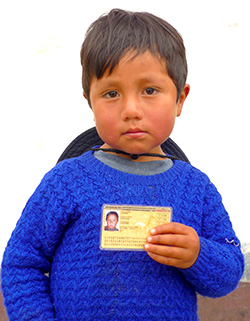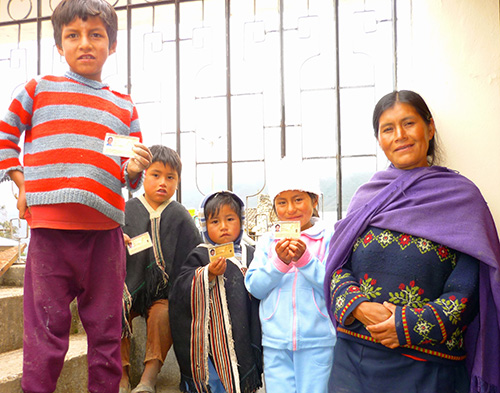Ciudadanos Invisibles

Peru faces a social fracture that manifests itself through the exclusion from social rights and access to modernity. This situation is present in a more severe manner in the rural Andean regions, because of their geographic, economic and educational disconnection from the rest of the country. One way in which exclusion presents itself highlighted by the last national and it is the lack of identification documents (DNI), which is against the right to identity and prevents the use of other rights.
RENIEC’s procedures for the delivery of the DNI to the population are appropriate for the urban areas, but are ineffective for the rural ones, especially for dispersed communities in the Andes.
In view of this situation, the UNDP considered necessary to support economically the implementation of a campaign model that articulates RENIEC’s experience with the ones form the social civil society.
Ciudadanos Invisibles (Invisible citizens) was born in the year 2006 through an agreement subscribed by UNDP, the “Agencia de Cooperación Española” (AECID) and the Presidency of the Ministerial Council (PCM) to promote the processing of national documents for the undocumented minors of the rural Andean regions with the objective of identifying an ad-hoc methodology for the following goals:
- Achieve a greater convene of the population in rural regions living in extreme poverty.
- Identify the factors that limit the efficacy of the RENIEC campaigns and to look for ways to overcome these factors.
- Decrease the costs of the DNI procedures and delivery.
Between December 2007 and June 2009, pilot experiences were performed to identify the activities that strengthen the efficacy of RENIEC campaigns, such as:
- Convene children with the support of teachers at schools.
- Convene the population through their health centers.
- Execution correction on birth certificates in municipalities.
- Free delivery of birth certificates for the population living in extreme poverty.
- In place registration at the community, including pictures and documentation delivery.

To this date, all Peruvian children have a DNI that identifies them since their birth.

